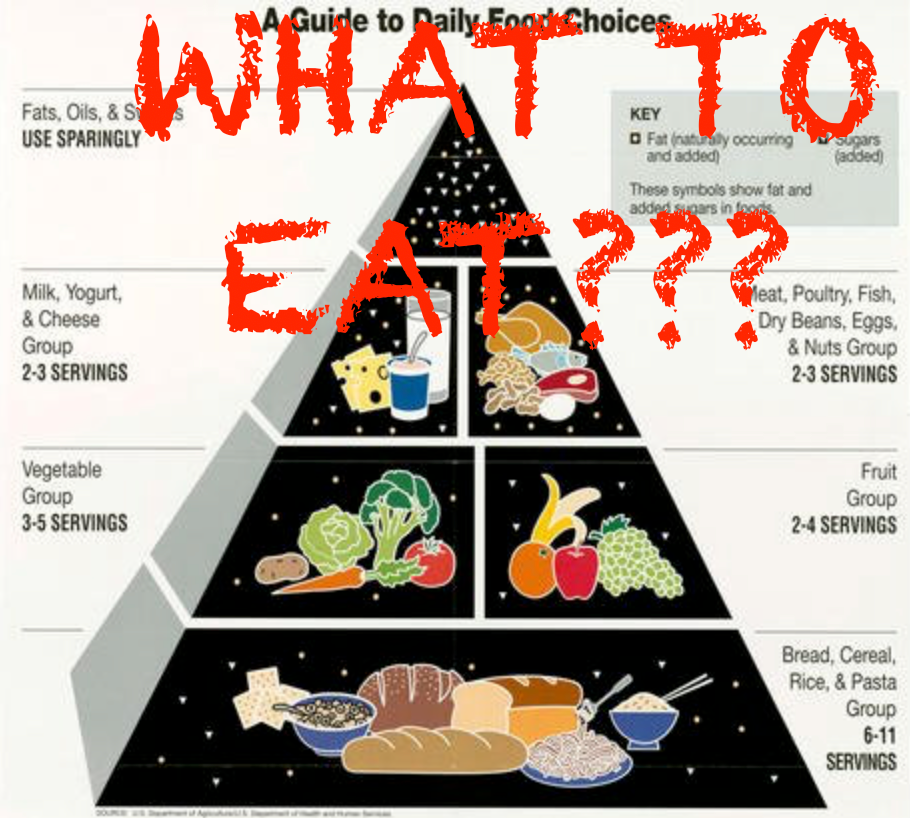Let Food Be Thy Medicine
- Ryan Luby
- Jul 9, 2018
- 6 min read

In Eating Well For Optimum Health Dr. Weil explains,
“In the fifth century B.C., Hippocrates, the godfather of Western medicine, advised people to “let food be your medicine, and medicine be your food.”
Dietary modification is a primary therapeutic intervention in Ayurvedic medicine as well as in traditional Chinese medicine, and in both Indian and Chinese cooking, ingredients are valued for their health promoting properties as much as for their flavors.”
This approach couldn’t be more foreign in our country. That isn’t to say no one talks about the health promoting properties of foods, but if a food doesn’t particularly hit your sweet, and salty senses right.. it doesn’t really matter how healthy it is, you aren’t eating it.
Which is increasingly problematic since our country is filled more and more with hyper-sweet and salty processed foods. Ingesting these foods often literally changes your taste buds so that something that was naturally sweet or salty now tastes bland, tricking you to believe that great taste, and health are mutually exclusive in terms of the food you eat.
Quick disclaimer.. Nothing I talk about is an all or nothing approach. There are dozens of incredibly risky, irrational and unsafe practices in both Chinese and Ayurvedic medicine that I wouldn’t recommend but that doesn’t mean there are not conversely incredibly rational, low-risk, and safe approaches that we should use more. This is the same for the famous Hippocrates quote. While I feel strongly that we need to work harder to use food as our medicine, this is simply one piece to the puzzle. I would never suggest you can have perfect health by only having a perfect diet and doing nothing else.
How to let food be your medicine:
Tracking your food is the best way to utilize this approach. If you live off mostly pizza, green apples and walnuts like me there isn’t usually much to track. But for most people this is a perfect way to act fast when something feels off.
You can flip through your food logs, see what you consumed, find any variations, and course correct by removing the potential culprit to see how you feel going forward.
Again.. I’m not telling anyone to never go to the doctor and don’t take any illness seriously. But more often than not even an illness can be successfully treated at home by altering your diet accordingly. At the very least tracking your food intake gives you a better understanding of foods that make you feel good, and foods that make you feel bad. Your tracking doesn’t need to be more complicated than that.
It's not only about what you eat, or what you take out but also how you eat and when.
Common culprits:
These are just a few examples of common food/food types that can be the culprit if you’re feeling off.
Dairy: No you don’t have to be lactose intolerant for dairy to cause some issues. It has been scientifically proven and documented to cause dry skin and eczema specifically and is thought to be correlated to many other health concerns due to increasing inflammation. This does not mean you need to cut it out entirely from your life, but if you are experiencing specifically, dry skin, eczema, nausea, congestion to name a few.. it’s worth eliminating dairy for a week or two to see if you notice any improvements.
Caffeine: Plenty of debate here on how healthy or unhealthy caffeine is, I’m not here to debate it. I will just say that caffeine is another common culprit when you start to feel off. Caffeine’s common side effects include anxiety, insomnia, tremor and irregular heartbeat. It can also irritate the digestive system, bladder and prostate. If you experience any of these effects, you’re better off avoiding coffee at least until you feel better.
High Sugar: Just eat less carbs/sugar all around. I know this is not accurate but it’s more of a mind-trick to help me eat better, I include carbs as sugars. First off, this is the case with all drinks, and some foods anyway. But more than anything it helps you avoid anything that might spike your blood sugar too much. The best way for me to visualize it is to think of your blood sugar like waves in the ocean, and your body is a boat. When the waves (your blood sugar) have big peaks, and real low, lows your boat is going every way but straight, and it’s hard getting anywhere. But if the water is consistent like glass (stable blood sugar) than you can cruise, turn, go wherever without much resistance.
Low Fiber: This one is a little harder to pinpoint but I think almost everyone’s health would improve if they increased their fiber intake. The issue here is fiber must be introduced slowly or else you may upset your stomach. Either way, your body is smart and will adjust so if you experience any upset stomach from fiber your best off continuing to slowly increase fiber as opposed to stopping it. Any stomach issues should go away as your body adjusts and long-term your health will be much better off with a higher fiber diet which is known to blunt the effects of carbs and sugar on your health, promote a healthier gut bacteria, clear away waste, and help keep you full longer. Of course if you experience stomach issues for weeks after eating high fiber than you can cut back on your intake a little.
Too little water: Another major issue in most diets. I don’t want to hear about the one person who famously died from drinking too much water during a radio challenge.. this is not relevant to your normal diet. We all need way more water than you would think and despite any subtle issues from over-consuming water, they don’t compare to the risks of be dehydrated. There are little calculations to figure what you should drink per day, like 8-8oz glasses, or half your body-weight in ounces, I just try to drink at least 3-4 glass before 9am (or within three hours of waking) and then continue drinking water throughout the day. Depending upon my activity throughout the day I will vary this slightly but when it comes to water, the more the better, and the earlier the better.
Low in vitamins/minerals: Again this is hard to notice specifically but if you start to feel off, your best bet is to focus on only eating foods very high in vitamins and minerals like fruits, vegetables, some meat, or soups with meat broth. You can simplify this even further and focus on the key vitamins and minerals like calcium, magnesium, potassium, vitamin C & D. More often than not simply focusing on increasing your intake of these will help you feel a little more stable.
Too much food: My favorite of all, just plain fasting. Letting food be your medicine is not just about the healthy foods we need to add but also about what we need to remove. Just keeping human anatomy and physiology as simple as we can, think about how much effort the body takes to feel better when something is off. Even better, understand that effort for the body is often boiled down to the movement of blood and oxygen throughout the body. This is why controlled inflammation is so beneficial when we get a bruise, cut, or fracture. The inflammation is evidence of fresh oxygenated blood in the affected area which helps promote healing and restore balance. Now, back to eating. In college we learned the digestive tract can recruit up to 40% of the bodies total blood supply when we eat food. That’s a massive burden on the body. This is why when you’re sick, its often best to eat less or even fast for a period of time to let the body have all the resources it needs. Practice doing short 12-16 hour fasts periodically so that you are able to use this when you don’t feel well. Couple fasts with even more water to help the body and to satiate hunger a bit. Best of all, when you’re sick or have a common cold I would strongly recommend fasting, drinking lots of water, sleeping as much as possible, and only consuming nutrient dense fruits, vegetables, and brothy soups until you feel better.
I am by no means definitively against drugs or surgery when necessary.
But I am always definitively against expensive, high-risk, invasive, potentially toxic approaches to anything when there are far more cost effective, low-risk, high-reward options available. Do your homework. Unfortunately with very little effort you can learn more about nutrition than doctors are ever required to learn.
And if you are smart, pay attention, and track your own food intake you will know smart approaches to improve your health and course correct if you feel a little off.
Always be smart and be cautious if you really don’t feel well play it safe and check in with your doctor whenever you can.
Learn more on this:
Book: Dr. Weil - Eating Well for Optimum Health
https://www.amazon.com/Eating-Well-Optimum-Health-Essential/dp/0060959584
Book: Dr. Weil - Spontaneous Healing
https://www.amazon.com/Spontaneous-Healing-Discover-Embrace-Maintain/dp/0804117942




Comments